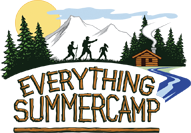Hey, Weaver Readers!
Clothing and other fabrics are a huge part of our lives. I don’t know about you, but I wear clothes every day. People have worn things for a long, long time—long before we even developed our ability to construct fabric. Before clothing  existed, people would drape or tie natural elements around their bodies such as animal skins, fur, grass, leaves, bones, shells, and anything else handy that worked.
existed, people would drape or tie natural elements around their bodies such as animal skins, fur, grass, leaves, bones, shells, and anything else handy that worked.
It was about 8,000 years ago that people first started producing textile fabrics—material made by creating an interlocking network of yarns or threads. Methods of textile construction are knitting, crocheting, felting, braiding, and weaving.
Weaving in itself, however, goes back even further than textiles, back another 4,000 years (altogether, 12,000 years ago) to the Neolithic Era, also known as The Stone Age. The art of weaving is actually thought to be one of the oldest crafts still utilized today. The basic idea of weaving even preceded the actual discovery of the process. People naturally made woven baskets, shelters, even fences, and more by simply interlacing tree branches and twigs.
Weaving is great for imparting skills and other benefits to anyone who decides to try their hand at the process. It’ll help you in areas like:
- Hand-eye Coordination
- Concentration
- Problem-solving (as you can encounter plenty of problems in the process)
- Pattern-understanding and Sequencing
- Creativity and Relaxation (as the process is quiet and calming—a great space for creativity to bloom)
Along with these benefits, weaving also teaches kids about recycling and reusing materials. From sticks to paper or yarn—if it’s long enough and flexible enough for your purposes, you can weave it. A great activity for cold or rainy days, give weaving a try sometime and look into whether your camp offers this powerful, primitive, tried-and-true tradition. Enjoy the process, Everybody. And, as always, thanks for reading.
- John



